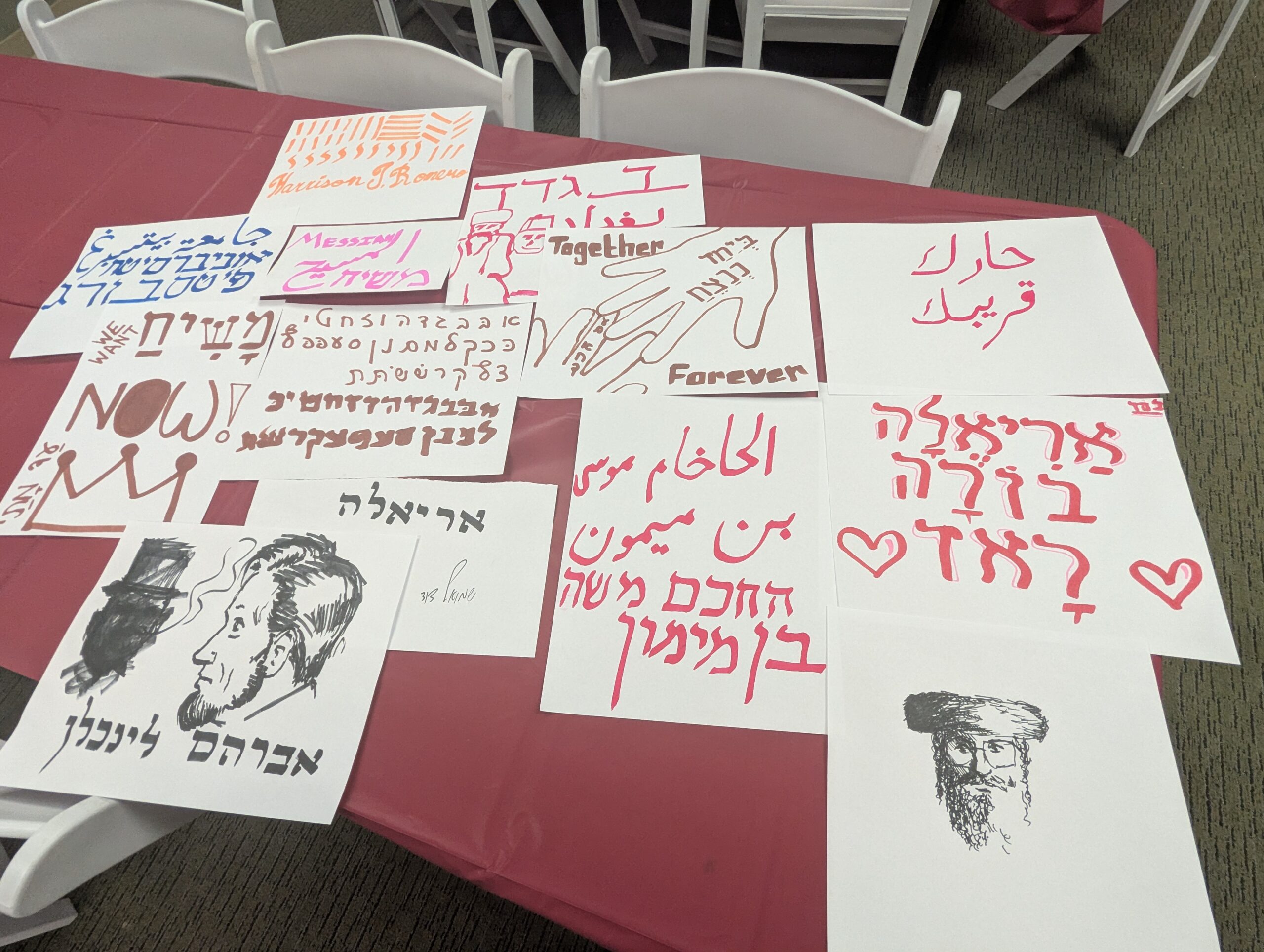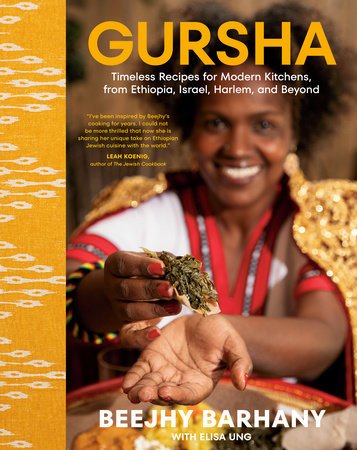A version of this piece was shared at the Elluminte Convening on Nov 3, 2022 in New York City. It has been adapted for print.
I was born in Ethiopia in 1987. My family had lived in the area for hundreds of years. But in 1990, my family and I escaped the civil war that was tearing the country apart and fled to Israel. I was only three years old when we were refugees running a war that turned us from innocent civilians into casualties. War stole my homeland and nearly destroyed my family. I was robbed of the life I could have had.
The Ethiopian Jewish people had lived in the land of Aksum for centuries, but years of an oppressive, tyrannical regime and civil war were not just erasing our way of life; it was erasing us. Brilliant minds and heroes of the Ethiopian Jewish community appealed to Israel to get us out. No help came. The issue was divisive. We were described by some as having “the mental outlook of children.”1 While other officials that our cultural divide would just be too great to properly acclimate to Israeli life2. Many even questioned whether we were even Jewish- often concluding that we were not.
 These same brilliant Ethiopian minds that sent appeals to Israel began flooding letters to Jews in the United States. After almost a decade of intensive lobbying and activism to raise attention and awareness, Israel began to mobilize to prevent a “shanda di goyim,” which is Yiddish for an embarrassment in front of the non-Jews. It did not answer our plea out of kindness but rather to avoid controversy.3
These same brilliant Ethiopian minds that sent appeals to Israel began flooding letters to Jews in the United States. After almost a decade of intensive lobbying and activism to raise attention and awareness, Israel began to mobilize to prevent a “shanda di goyim,” which is Yiddish for an embarrassment in front of the non-Jews. It did not answer our plea out of kindness but rather to avoid controversy.3
And so, my family and many others did eventually, make it to Israel in one of the most impressive evacuations in human history. Still, I can’t help but look back and wonder how much suffering and worry, how many Jewish lives could have been saved had Israel acted sooner.
Flash forward to today. Another oppressive regime, this time Russia, wages war on the people of Ukraine. Though far away, this stirs of up memories and difficult feelings for me.
It has always angered me when I see oppressed people, and the situation in Ukraine is no different. I feel this way because I’ve been there. My father and my mother have been there. We have walked this path before, and I would never wish this torment on anyone.
It then warmed my heart when at the start of the war, the world cried out in one voice that this was not ok and in one motion, put their unwavering support to the Ukrainian people. They sent military aid; they opened their borders to accept Ukrainian refugees, and some independent individuals flew to Ukraine to fight alongside the Ukrainian army on the side of righteousness and freedom. To see humanity come together like that is what this world warmed my heart. While there is still more to do, our world needs this kind of caring.
At the same time, this response, also reminded me of what was missing when the suffering was happening to my people.
Once the war broke out in the Ukraine the assistance was almost immediate. And rightly so. But it made me wonder once again, why it took over a decade for Israeli and Jewish leaders to come to the assistance of Ethiopian Jewry. Imagine how it must have felt for those men and women, writing letters every day, not knowing if they would even be received?
And the story of Ethiopian Jews is not unique. Where was the immediate assistance to the humanitarian crisis in the Democratic Republic of the Congo when their crumbling government has failed to curtail various ebola outbreaks, oppression, and unrest? Where was the immediate assistance when the Yemeni Civil War broke out, or when the transitional government of Sudan has failed in keeping its people alive, or even in my homeland of Ethiopia and the genocide that is being committed against thousands in the Tigray region?
Our attention spans are perhaps not broad enough to care about every single person in need, so the Western world has prioritized who it has cared about. The people who are left suffering seem to always be people of color. It is not a reality that many Americans are ready to acknowledge or accept.
I have had so many political conversations over the past few months with all the nuances and reasons for these vastly different responses to war and suffering. In thes conversations, I focus on the human lives impacted by conflict. Since the Ukrainian war broke out 7.7 million Ukrainians have been displaced with 9,000 dead, 4,000 of which were civilians. In the Congo, 27 million are in need, 5.6 million displaced, and 100,000 dead. In Yemen, over 11,000 killed with 20 million still in need. In Sudan, 14 million are in need, 3 million displaced, and 400,000 deaths. In Ethiopia, 25 million in need, 4 million displaced, and 500,000 killed. Those are the numbers, those are deaths, those are undeniable.4
Does a black life in Ethiopia matter less than a white life in Ukraine? Of course not. Should we stop caring about Ukraine so we can care about Ethiopia instead? Of course not. What we should be doing is pay attention to all who need us. We don’t need to be focusing on a story that has a more marketable villain in President Putin and the groups of impacted innocent people just because look a certain way. We need to see human suffering for what it is. We need better news coverage that doesn’t hide these atrocities from our eyes and acknowledge our racial biases and fix them.
Israel took almost a decade to help me and my people who were Jewish, meanwhile within the first month of the Russian invasion over 11,000 non-Jews were taken in by Israel, given aid, and temporary housing.5 I don’t have a simple solution to this all, but I know the first step to solving any problem is admitting you have one.
Benjamin Franklin “Hawkeye” Pierce of the TV show M.A.S.H. famously said,
“There’s always a war going on. War is the world’s favorite spectator sport, but war isn’t Hell. War is war, and Hell is Hell. And of the two, war is a lot worse. There are no innocent bystanders in Hell, but war is chock full of them – little kids, old ladies. In fact, except for a few of the brass, almost everybody involved is an innocent bystander.”
It is up to us to decide how to respond to the war games that continue to impact innocent people around the world. We need to look beyond the flashy headlines and see the real cost to innocent people. We need to look beyond race and region as we frame our responses. Because we cannot afford to have other families suffer and wait like mine did.
1 World Zionist Organization writer Malkah Raymist
2 Director General of the Jewish Agency’s Department of Immigration and Absorption Yehuda Dominitz
3 Operation Solomon: The Daring Rescue of the Ethiopian Jews by Michael Galchinsky
4 All statistics from The International Rescue Committee and the London School of Hygiene & Tropical Medicine
5 Wall Street Journal







